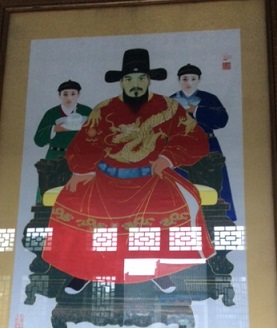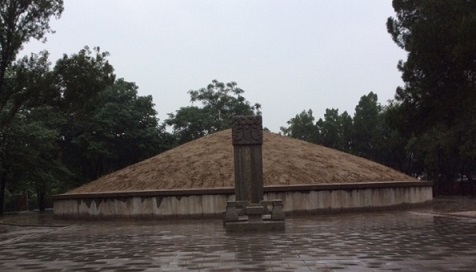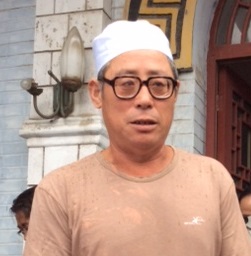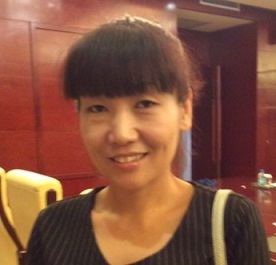
In Dezhou, there’s Chinese-Muslim village, many of whose inhabitants trace their roots to the Sultan of Sulu.
They have concrete proof of that connection: the tomb of the 13th century Sultan of Sulu Paduka Pahala at the Decheng district of Dezhou.
The only mausoleum of a “foreign king” in China, it is the only burial place with a village in charge of guarding it.
We talked with two of the 19th generation descendants of Pahala – 58-year old An Fengdong and 36-year old An Jing, who, although they have never been to the Philippines, have fond thoughts about Sulu from the stories of their grandparents.

We met the two as part of the media tour the Chinese government arranged for Philippine journalists to mark the 40th year of diplomatic relations between the Philippines and China.
The story of Pahala tells of the glorious days of Kingdom of Sulu, 100 years before the Spaniards supposedly “discovered” the Philippines. It also speaks of the deep and long friendship between the people of the Philippines and China which is now under severe challenges over conflict in the South China Sea.
Materials available on Sulu East King Paduka Pahala inform us that on August 1417 in the 15th year of Yongle Empire, a 343- strong delegation from Sulu came to Beijing to pay tribute to the Emperor.

Pahala’s delegation stayed in Beijing for 27 days. On their way back to Sulu, Pahala fell ill and died at the courier station on Sept. 13, 1417.
Upon learning of Pahala’s death, Yongle arranged an elaborate funeral as “standard for a brother of the empire.”
He ordered to have cultural relics like royal monuments, stone sculptures of human, horse, and sheep in the south of Pahala’s tomb, just what they do with the burial places of Chinese princes.
After the burial, Pahala’s eldest son, Rakiah Baginda, returned to Sulu to take his father’s place in the Kingdom. Pahala’s wife, Kamulin and their younger two sons, Won and An stayed to take care of their father’s burial place.
The Chinese government gave them land and salary to take care of the mausoleum.
In 1424, Kamulin went back to Sulu but returned to Dezhou after about a year. She never left Dezhou after that.
Kamulin’s tomb as well as that of Won and An are also located in the mausoleum complex which now includes a mosque.

An Jing estimates some 200 relatives in Dezhou and 3,700 descendants of Sulu East King all over China.
An Jing said she is aware of the problem in relations between China and the Philippines now but she believes friendship will win in the end because “our hearts are connected.”
An Jing said, “Guided by the spirit of my ancestors, I will try hard to make my own contribution for China-Philippine relations.”
Be First to Comment